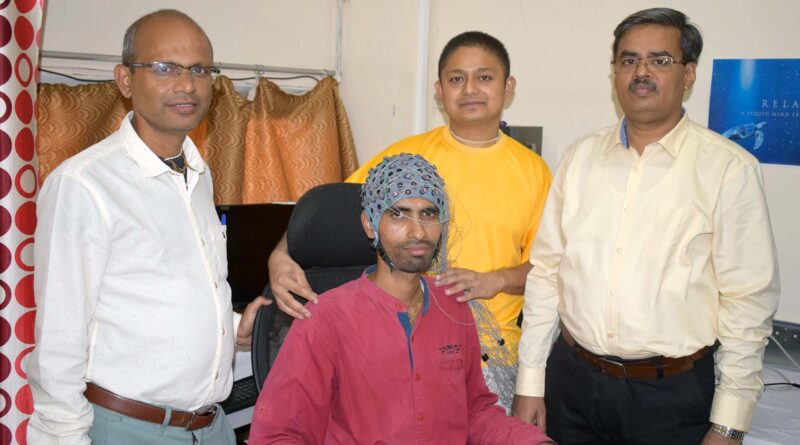IIT Mandi Study Reveals Indian Classical Music’s Impact on Brain Activity
Mumbai: A groundbreaking study by IIT Mandi, led by Prof. Laxmidhar Behera, has made a significant discovery about the impact of Indian classical music on brain activity. The research, conducted in collaboration with IIT Kanpur, found that listening to Indian classical Ragas can alter brain activity, enhancing attention, emotional regulation, and mental stability.
The study used EEG microstate analysis to map brain activity in 40 participants exposed to Indian Ragas. The results showed that:
- Raga Darbari increased attention-related microstates, indicating deeper focus and cognitive clarity.
- Raga Jogiya enhanced attentional networks and emotional regulation, enabling listeners to process emotions with calm and composure.
The research suggests that Indian classical music can be a powerful tool for mental wellness, offering a culturally and resonant alternative for managing stress, burnout, and attention deficits.
According to Prof. Laxmidhar Behera, “EEG microstates offer a window into how the brain operates moment by moment. What we found was that Ragas don’t just evoke feelings, they actually reprogram the brain in real time.”
The study’s findings have been published in Frontiers in Human Neuroscience, affirming the global relevance and scientific credibility of this research. This study opens doors to personalized, culturally rooted mental health strategies, potentially aiding students, professionals, and those facing emotional distress.
The research team suggests that listening to specific Ragas could be used as a therapeutic tool, such as:
- Raga Darbari before exams or important meetings to improve focus
- Raga Jogiya to manage emotional overwhelm or grief
This study highlights the potential of Indian classical music as a non-invasive and culturally relevant approach to mental wellness.




